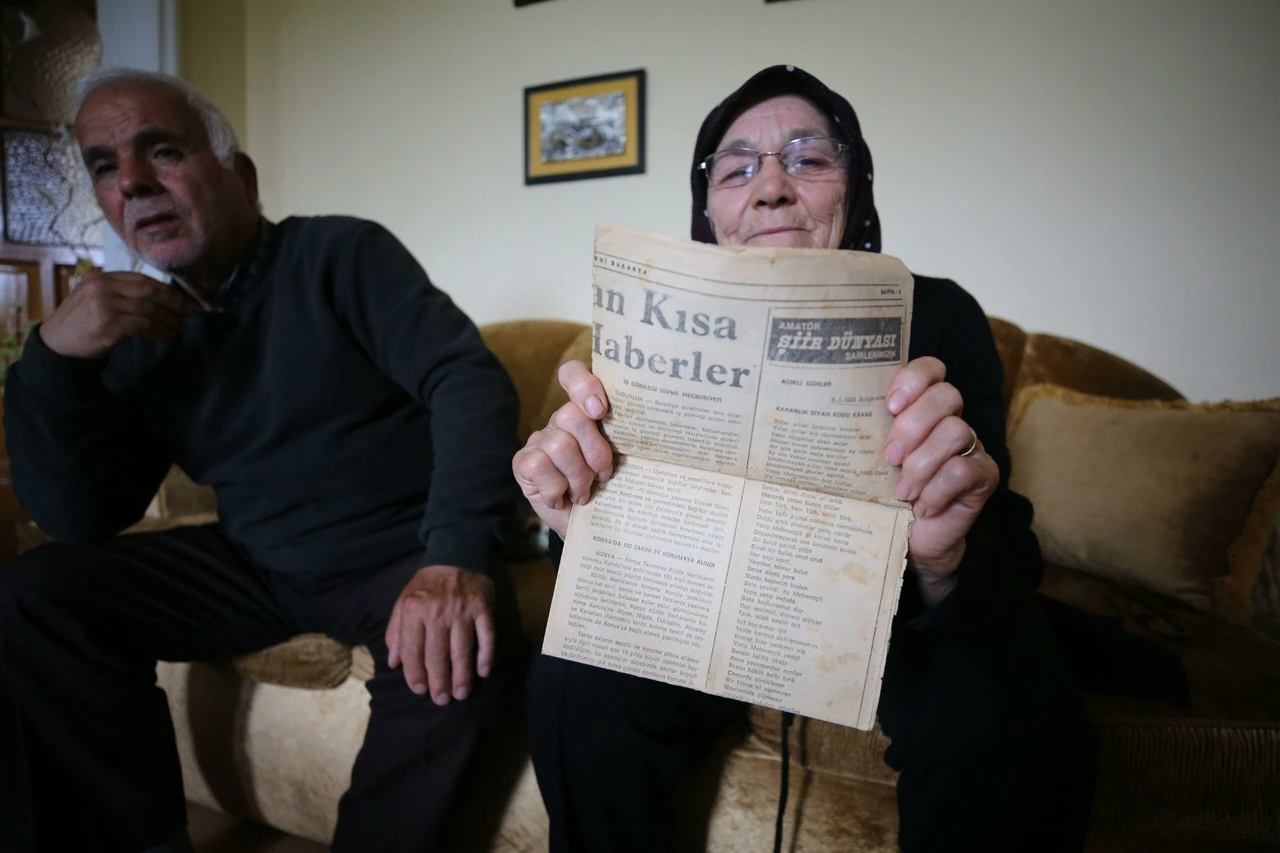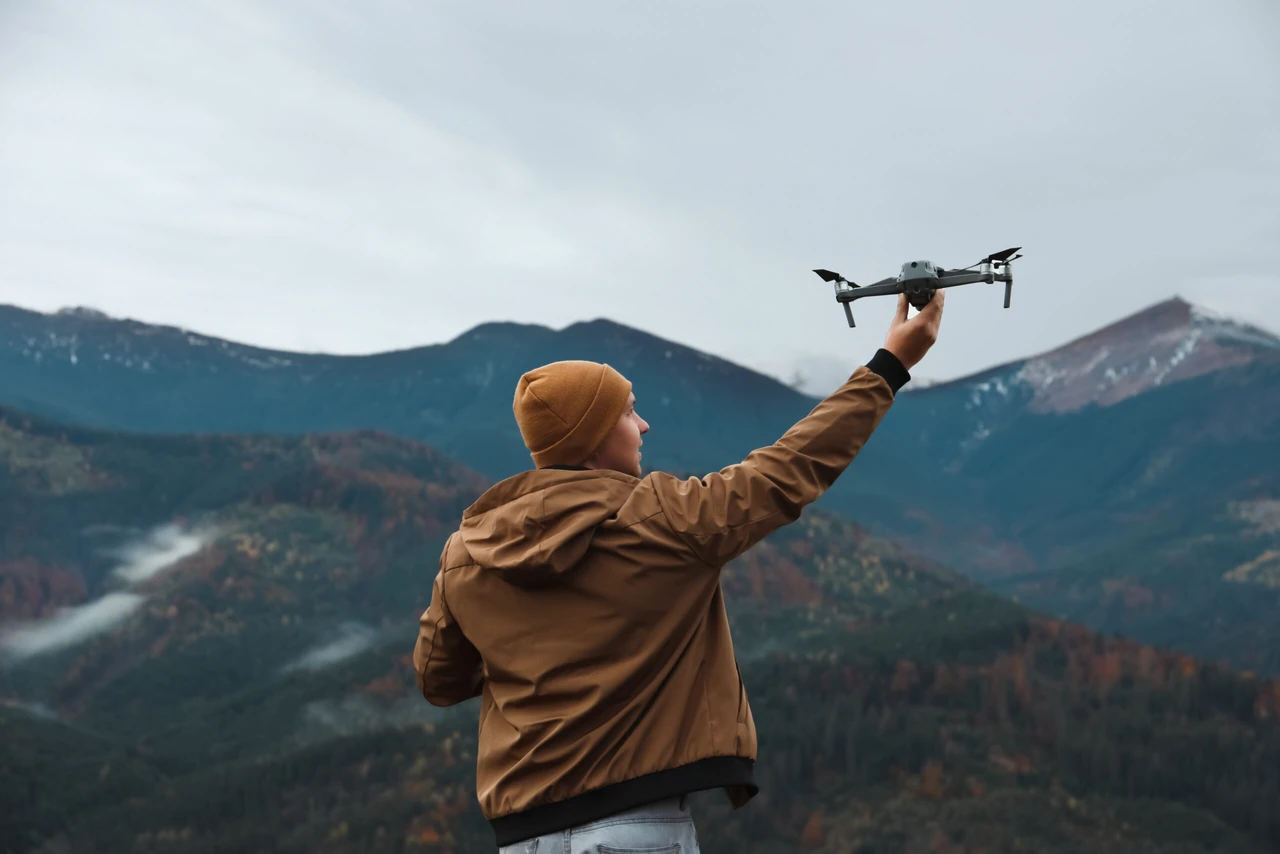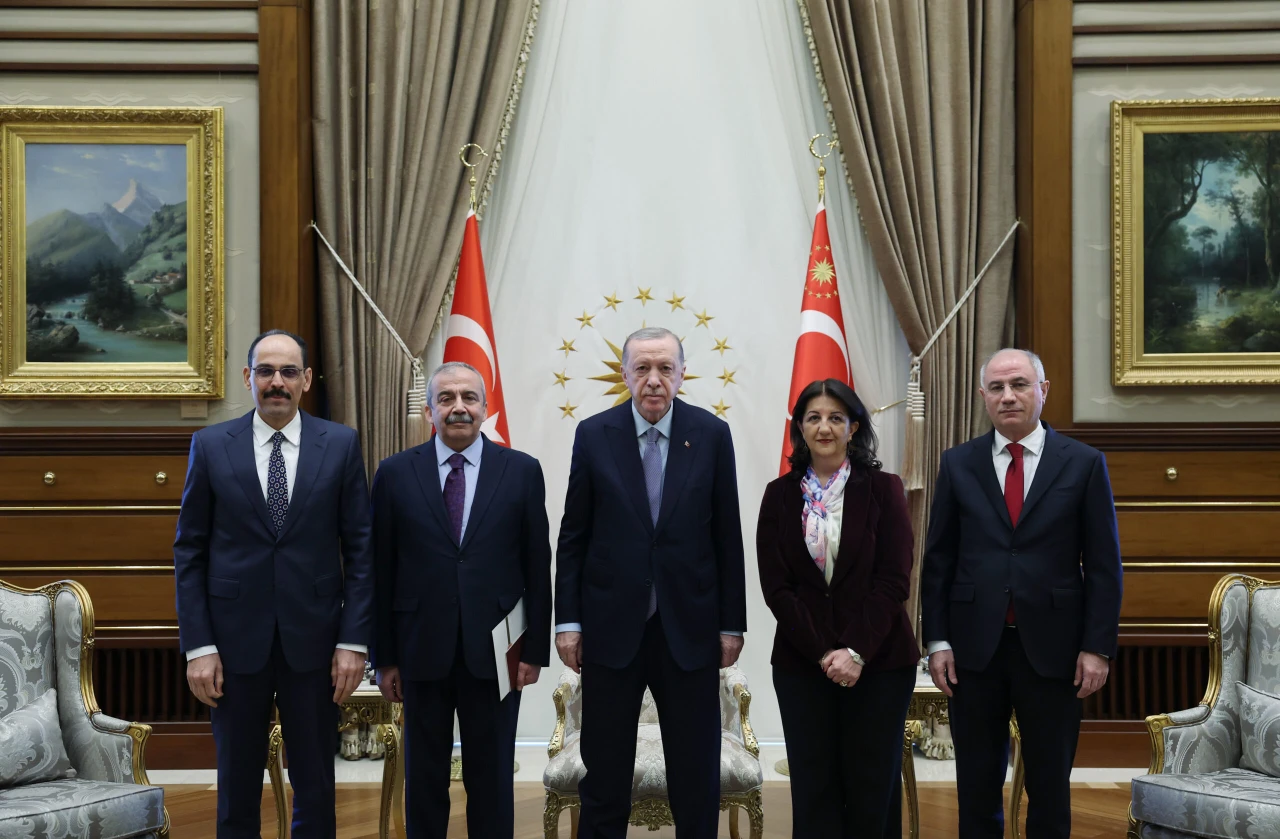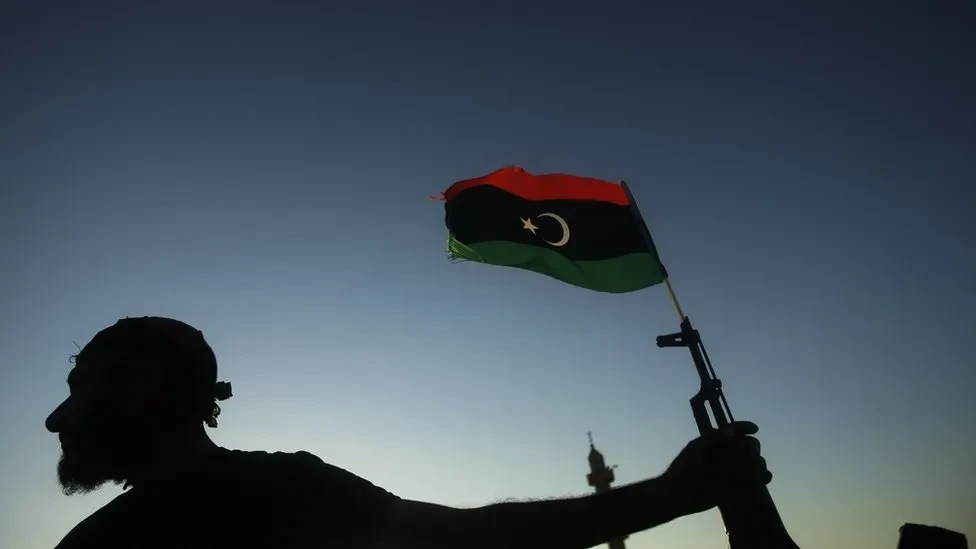Turks deported from Bulgaria to Türkiye recount persecution

Retired history teacher Abdurrahman Yilmaz, along with Bedriye and Mustafa Pasaoglu, recall the pressures and pain they endured as they fled Bulgaria for Türkiye.
It has been 35 years since the “forced migration” of approximately 350,000 Turks escaping Bulgaria’s assimilation policies between 1984 and 1989.
The Pasaoglu couple and retired teacher Yilmaz, who now reside in Serdivan, Sakarya, recounted their experiences of human rights violations, pressures, and their journey of forced migration to an Anadolu Agency (AA) correspondent.
Eighty-seven-year-old Bedriye Pasaoglu, who arrived in Türkiye in January 1990 after visa regulations were implemented, shared her experience.
She noted that from 1984 to 1990; she served in a position equivalent to today’s parliamentary membership in Bulgaria’s People’s Front Party. Concurrently, she was a manager in a shoe factory with 1,600 employees. Bedriye detailed how soldiers came with tanks and forced everyone in the factory to change their names.
“The first person called was named Mustafa, and as a manager, I also went,” Bedriye shared.
“The soldiers tortured Mustafa, stabbing his hand with a pen when he refused to adopt a Bulgarian name, and then detained him,” he added.
Bedriye Pasaoglu described how, within two days, all factory employees were forcibly given Bulgarian names. Protests started in Turkish villages against these pressures, with soldiers targeting and shooting at people. She also mentioned how some close relatives were taken to prison.
She recounted the soldiers raiding the homes of their relatives living in forest villages. “A woman attacked a commander with an axe after hiding behind the door. They dragged her away by her hair, and they killed the baby in the house. My other relatives had to hide in the forest for a month,” she narrated her ordeal.
‘I couldn’t call my friends by their names’
Pasaoglu highlighted that soldiers could not raid her home because of her parliamentary immunity. “Our house was in the center. We had a rope on the balcony to escape from the third floor if needed. In the factory, my name was changed last among the 1,600 people. Everyone had Bulgarian names on their badges. We were under constant surveillance, and those who spoke Turkish were penalized. I couldn’t call my friends by their names. Using Bulgarian names was heavy,” she stated.
Bedriye Pasaoglu shared that after getting a medical report and leaving her job, she prepared to come to Türkiye with her two daughters and husband. “As we entered Türkiye, I was overwhelmed with excitement. Seeing the beautiful, glorious Turkish flag waving brought tears to my eyes. Our acquaintances welcomed us,” she said.
She also added that in Bulgaria, Muslims were not allowed to be shrouded or have funeral prayers, and the deceased were buried vertically.
‘It’s like being reborn in your own country’
Seventy-eight-year-old Mustafa Pasaoglu, who worked in a shoe factory in Bulgaria before migrating, shared his hardships when communicating in Turkish. “We were constantly harassed with statements like ‘This is Bulgaria, not Türkiye,'” he said.
Mustafa expressed their joy upon entering Türkiye: “It’s like being reborn in your own country and among your own people. We came from a completely different regime. It wasn’t easy to adapt, but we gradually got used to it, thank God.”
Pasaoglu recounted how Bulgarians banned young people from going to mosques, and how soldiers would gather in the center every night and take buses to raid Turkish villages.
‘No Turkish music at weddings’
Yilmaz, who migrated to Türkiye at the last moment with his wife and two children, had spent 35 years in Bulgaria, 11 of which were as a teacher.
Yilmaz highlighted the assimilation policy that was previously applied to Pomak Turks and noted how swiftly the Bulgarian government implemented this policy at the end of 1984. “Soldiers raided villages, factories, and workplaces, forcing Turks to change their names. Those who refused to choose a name from the list of Bulgarian names were given names people disliked,” he explained.
He recalled how some who resisted were taken to Belene Island, where prisoners were held, and how soldiers went door to door, causing people to stay home, avoid work, and keep their children out of school. Yilmaz remembered some Turks were martyred and others tried during the uprisings against this policy.
Yilmaz, a teacher at a middle school in a Turkish-populated village during that period, said: “The difficulties began when the name changes started. Speaking Turkish, listening to Turkish music… ‘There will be no melodies reminiscent of Turkish music at weddings,’ they said. People began to have silent weddings. The banning of circumcisions, mevlits (religious ceremonies)… This situation became difficult for me as a teacher as well. As a history teacher, I was told, ‘You need to explain and convince them that the Turks are of Bulgarian origin.’ This was too much for me, so I resigned from being a history teacher and started working as a guidance counselor at another school.”
Yilmaz stated that the government, fearing the spread of protests, decided to grant Bulgarian citizens freedom of travel. They first deported those in prisons who might cause trouble in countries that did not require visas.
‘Our homeland is Bulgaria, but we always saw Türkiye as our motherland’
Sharing details about the difficulties they faced during migration and the wait in the camp because of the congestion at the border, Yilmaz said: “We received news that, by a decision of the Turkish government’s Council of Ministers, the border would be closed after 2:00 a.m. and a visa requirement would be implemented. People started running in all directions. We were worried about being left behind. There were accusations that ‘Türkiye did not accept you, you are not Turks.'”
Yilmaz highlighted families were also torn apart during that time as they endured hardships.
“At 1:40 a.m., the border opened, and the gendarmerie allowed those with private cars to pass. I didn’t have a car. I asked for permission to cross the border. The commander said, ‘Go, if you can cross, then cross.’ Upon hearing this permission, we ran to the customs. They searched us, suspecting we had money and gold.”
“Someone said, ‘Don’t delay; the Turks are closing the border.’ Hearing this, we ran, cutting through the crowd of journalists. As we crossed the border, flashes went off behind and in front of us. Then I saw the sign of the Republic of Türkiye. The journalists said, ‘Are you aware? You would have been stuck there if you were just 1-2 seconds later.’ We said, ‘Alright, we are now in the motherland.’ Our homeland is Bulgaria, but we always saw Türkiye as our motherland. It was an indescribable feeling.”



